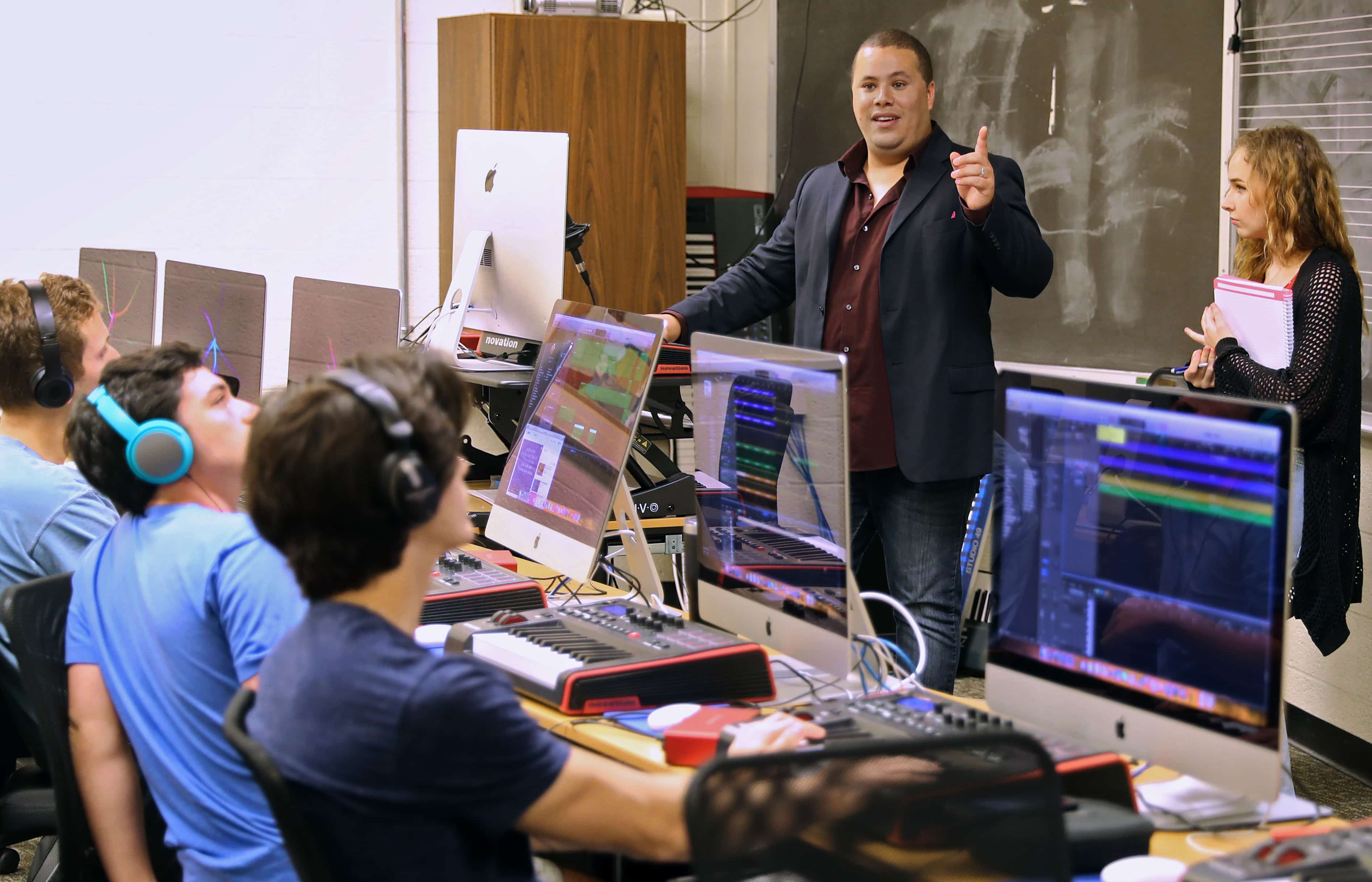University of Florida professor José Valentino Ruiz is no stranger to the red carpet — at just 31, he has been nominated for three Latin Grammys. This year, he took home the trophy at the 20th Annual Latin Grammy Awards ceremony in Las Vegas.
Ruiz, who performs as José Valentino, was the flutist and recording audio engineer on the album “Todo Pasa,” winner of Best Christian Album (Spanish Language).
“When the announcer mentioned the name of the album and the name of my mentor and the artist of the album, Juan Delgado, I actually questioned if he mentioned our album or if that was my imagination,” Ruiz said. “Instantly I had a plethora of flashbacks that led me to this moment. All I could do was cheer like if I was watching my favorite basketball team — ‘yeah baby!, that’s what I am talking about, woohoo!’”
Working on both sides of the microphone is the norm for Ruiz, who composes and produces in addition to performing. He served as the main performing artist, co-producer, co-engineer, composer and arranger on his album “I Make You Wanna Move,” which earned a Grammy nomination for Best Latin Jazz Album in 2015. The following year, he scored his second nomination as the producer and mastering engineer on Bruno Miranda’s album “Mosaico.”
When he’s not touring or recording, he’s writing film scores — one of which won a regional Emmy — and commercial jingles for McDonalds, Coca-Cola and ESPN.
He instills that versatility into students whose sights are set on the music industry.
“There’s a misconception that if you pursue music, you’re not going to be able to support a family and that it’s impossible to establish a career,” he said. “You can succeed if you have expertise in several areas.”
In his Intro to Music Technology class in UF’s College of the Arts, students use digital audio workstation software, MIDI keyboards and analog instruments to construct compositions. On a Monday morning in the computer lab, one student is reconstructing a Kendrick Lamar song as an exercise in understanding what went into its production. Another records a guitar part for track he’s creating for his midterm project. At the next workstation, a student adds narration to a commercial jingle she composed.
“It’s already at the caliber of music the commercial world would ask for,” Ruiz says.

Professor José Valentino Ruiz teaches his Intro to Music Technology class. Photo by Aaron Daye/UF Advancement
Ruiz has collaborated with former students on industry projects from film scores to commercial jingles and original singles — some students even contributed to his Grammy-nominated album and joined him the awards ceremony. A partnership with a former student also led to Ruiz’s work producing music for American Idol contestants in Miami.
When Ruiz saw a job posting to develop a music business and entrepreneurship curriculum at UF, “it sounded like joining The Avengers. The job description was calling for radical agents of change. Sign me up!” he says. “I wanted to be at an institution that values music not just for its beauty, but for the impact it can have in the community and around the world.”
He has two main goals for his work a UF: First, to make the university a place that other music programs — and the music industry — look to as a model and a bellwether for what’s to come.
“I want industry professionals to come to us to find out what they need to be looking into for the future,” he said.
Second, he wants to create a safe haven where budding music entrepreneurs can get the tools they need to bring diverse backgrounds and talents to the field.
“I want to help them find their purpose so they can express their perspective through different roles in the industry,” he said. “I’m not just grading them, I’m cultivating their artistic identity. I’m invested in their dreams.”